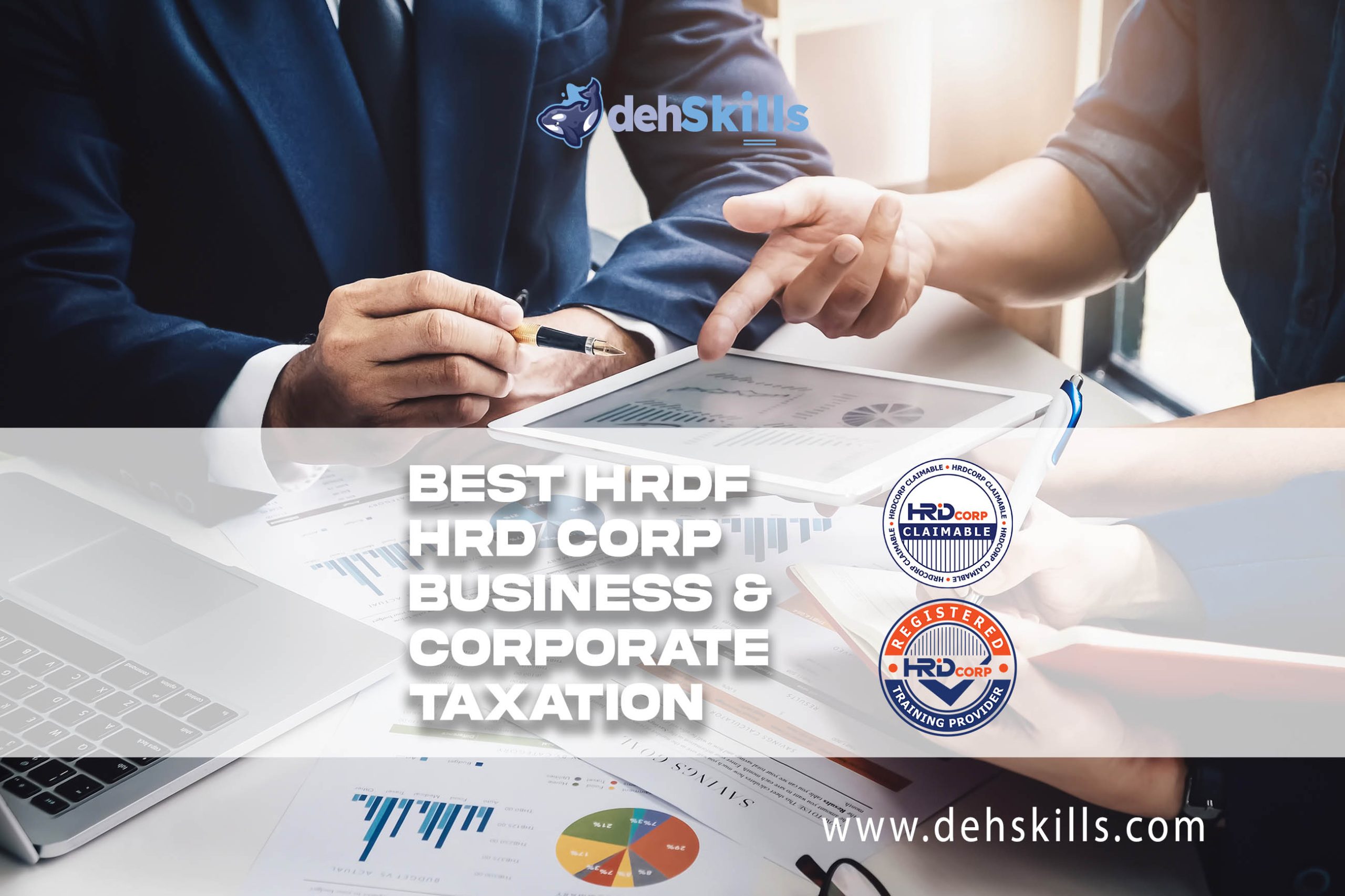
- This event has passed.
HRDF HRD Corp Claimable Business & Corporate Taxation Training
February 23, 2024 @ 9:00 am - 5:00 pm
RM1200
HRDF HRD Corp Claimable Business & Corporate Taxation Training
100% HRDF / HRC Corp Claimable Business & Corporate Taxation Training
23 February 2024 – 9am till 5pm
Face-to-Face Classroom
HRDF HRD Corp Claimable Business & Corporate Taxation Training in taxation will teach you the essentials of computing tax for the kind of business you run, whether you are self-employed or are employed by a limited company. If you are in control of the finances of a company, it is imperative that you have a solid understanding of when and how much tax must be paid to INCOME TAX MALAYSIA (LHDN), as well as the amount of tax that must be paid.
By taking this course on taxes for businesses, you will obtain a solid understanding of how to calculate and submit tax returns in a timely and precise manner, as well as how to get the most out of business spending through tax reductions, and you will be able to do so with more confidence.
What is income tax (cukai pendapatan)?
A sort of tax known as an income tax is one that governments levy on corporations as well as individuals who generate income. The funds that are collected through taxes are utilized by the government and the community to pay for things like healthcare, infrastructure, and other types of projects. Tax rates can be quite different from one nation to the next.
Income taxes in Malaysia are considered to be “territorial,” which indicates that a person or business is only subject to taxation on incomes generated within the borders of the country. Taxes on personal income in Malaysia can be classified as either progressive or flat, according to the nature of the taxpayer’s employment and length of time spent in the country.
Who is responsible for filing their income taxes?
According to LHDN, an individual is subject to taxation if they have an annual employment income of at least RM34,000 (after the deduction for EPF). This applies to residents as well as non-residents. Employees who are employed in the private sector in Malaysia are required to participate in a savings and retirement plan known as the Employees’ Provident Fund (EPF), which also goes by its acronym. Read this quick guide for Malaysian employees to get a comprehensive understanding of how the EPF operates.
Who ought to sign up for this class?
Those in charge of the financial aspects of a company absolutely need to have a solid grasp of tax calculation and filing procedures. This course on business and corporation taxation is appropriate for you if you are a member of a small business and will be responsible for performing bookkeeping duties. It is not necessary for you to have any prior expertise, although it will be helpful if you have a fundamental understanding of finances.
Objectives of the study program
Learners will be able to, by the end of this course:
- When operating a business, it is important to be familiar with the various taxes that must be paid as well as the procedures for doing so.
- Determine which pieces of financial information are required for the LHDN to assist you in calculating the amount of tax that is owing to them.
- Learn what is expected of you if you want to operate as a lone proprietor or as the owner of a limited company.
- It is important for some tax requirements that you are aware of the current tax rates.
- When purchasing assets, it is important to be aware of the capital allowances that may be available to you.
- Working knowledge of LHDN rates is essential.
Employment Tax
Taxation of Sole Traders Registering to be taxed as a self-employed person, self-assessment, partnerships, record keeping, permitted costs, calculating income, calculating tax, National Insurance Contributions, payments on account, and tax return filing deadlines.
Taxation of Limited Companies
The formation of a limited company, legal status, the veil of incorporation, accounts, profit and loss account, balance sheet, corporation tax, taxable profits, disallowable expenses, other reliefs, R&D tax credits, filing a corporate tax return, and pay and dividends are all aspects of taxation that are relevant to limited companies.
Capital Allowances
What exactly do you mean by “capital allowances”?
What exactly are the plant and machinery components?
including but not limited to the Annual Investment Allowance, paying down allowances, first-year allowances, private use adjustments, selling an asset, and cars.
Complete the form to receive via email an official HRD Corp quote, course outline, trainer profile, trainer TTT, and HRD Corp TP certificate.
Autogenerate Quotation for Course
- Public Class
- On-Site Training
